Environment
-
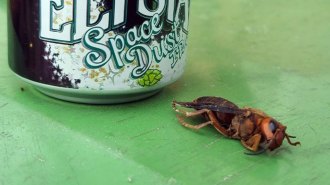 Animals
AnimalsFocusing on Asian giant hornets distorts the view of invasive species
2021’s first “murder hornet” is yet another arrival. This is the not-so-new normal.
By Susan Milius -
 Chemistry
ChemistryMany cosmetics contain hidden, potentially dangerous ‘forever chemicals’
Scientists found signs of long-lasting PFAS compounds in about half of tested makeup products, especially waterproof mascaras and lipsticks.
-
 Animals
AnimalsThe U.S.’s first open-air genetically modified mosquitoes have taken flight
After a decade of argument, Oxitec pits genetically modified mosquitoes against Florida’s spreaders of dengue and Zika.
By Susan Milius -
 Chemistry
ChemistryA new technique could make some plastic trash compostable at home
Embedding enzymes inside biodegradable plastics makes them truly compostable, which could mitigate the plastic waste problem.
By Carmen Drahl -
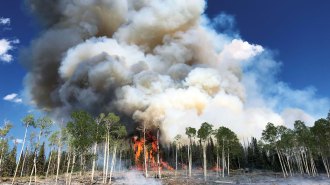 Ecosystems
EcosystemsWildfires launch microbes into the air. How big of a health risk is that?
How does wildfire smoke move bacteria and fungi — and what harm might they do to people when they get there?
By Megan Sever -
 Animals
AnimalsDiscarded COVID-19 PPE such as masks can be deadly to wildlife
From entanglements to ingestion, two biologists are documenting the impact of single-use masks and gloves on animals around the world.
-
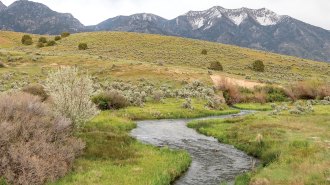 Ecosystems
EcosystemsSimple hand-built structures can help streams survive wildfires and drought
Building simple structures with sticks and stones — and inviting in dam-building beavers — can keep water where it’s needed to fight drought and wildfires.
-
 Archaeology
ArchaeologyA tour of ‘Four Lost Cities’ reveals modern ties to ancient people
In the book 'Four Lost Cities,' author Annalee Newitz uses cities of the past to show what might happen to cities in the future.
-
 Environment
EnvironmentThe world wasted nearly 1 billion metric tons of food in 2019
A new United Nations global food waste report shows where waste can be reduced, which would decrease hunger and greenhouse gas emissions.
-
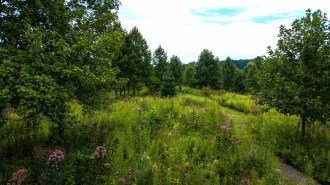 Environment
Environment‘Green’ burials are slowly gaining ground among environmentalists
Researchers asked older environmental activists what they planned to do with their bodies after death. Many were unaware of “green” burial options.
-
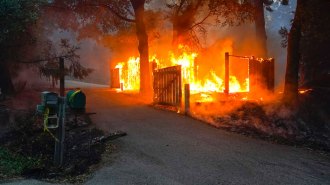 Earth
EarthPlastic drinking water pipes exposed to high heat can leak hazardous chemicals
Lab tests exposing commonly used water pipes to wildfire-like heat show damaged pipes can leach the carcinogen benzene and other chemicals.
By Megan Sever -
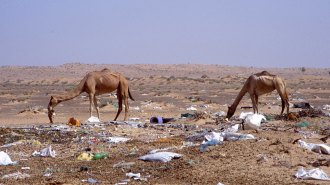 Animals
AnimalsPlastic waste forms huge, deadly masses in camel guts
Eating plastic isn’t just a sea animal problem. Researchers found suitcase-sized masses of plastic in dromedaries’ guts in the United Arab Emirates.
By Asher Jones